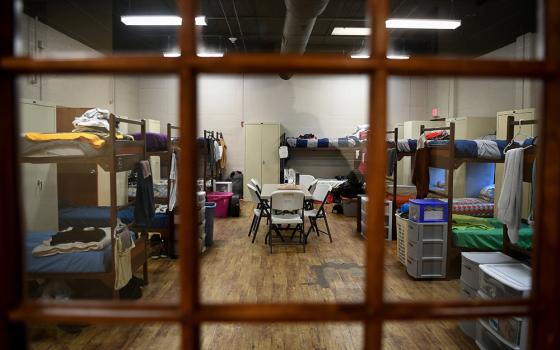In recent years, if you drove the highway out of Beacon, N.Y., you might see an old man standing alongside the road holding a placard reading "PEACE." That would have been Pete Seeger. Even in his 90s, he stood outside for an hour or so in fine weather holding his sign simply because it was a good thing to do.
All my life, I have loved Pete Seeger's music. I loved his guitar and banjo. I loved his invitation to sing along. I loved the things he sang about. But as I learned about his life, I loved him for his faithfulness.
Pete sang in lots of churches, but he wasn't a believer in organized religion. He believed in humankind and in our power to stand together and make the world a better place.
He was a thinking man who tried to do what was right. The New York Times' obituary tells how he regretted making a Lucky Strike cigarette commercial with the Weavers. He may have felt discomfort, too, at making hit records with the Weavers, but fame didn't last long enough for regrets. In 1955, he was subpoenaed to testify before the House Un-American Activities Committee. He chose a dangerous path, neither taking the Fifth Amendment nor naming the names of fellow travelers, as he had heard Elia Kazan do that very morning in that same hearing room.
Instead, the testimony transcript records that Pete Seeger said steadily to the committee that he would gladly tell them about the songs he sang, but he would not tell them about the people who wrote the songs, sang them with him or came to listen to him. He even offered "Study War No More (Down by the Riverside)" for discussion, but the committee members were not interested in going there.
At the time, Pete and his wife, Toshi, had three young children, and Pete incurred not only blacklisting but also an indictment for his testimony. They lived for seven years under threat of his being sent to prison before the case was finally dismissed. During those years, Pete took every job he was offered, traveling across the states to sing at nursery schools, colleges and ladies' sewing circles while Toshi managed his tours and raised the children in the log cabin they had built together. Toshi was no slouch in the faithfulness category, either.
And so, behind the backs of Congress and the entertainment industry, Pete taught us "This Land is Your Land" by Woody Guthrie, "We Shall Overcome" that Pete had found and embellished, "Little Boxes" by Malvina Reynolds, and all the songs he wrote himself. This morning as I write, my current favorite Pete Seeger song is "Precious Friend." But then I remember "Old Devil Time," and tears well up for all the gifts Pete and Toshi gave us. And I haven't even told you about his building the sloop Clearwater to call for the Hudson River cleanup.
Their life was faith in action, and if there is pie in the sky when you die, they are up there now, eating that pie with Woody Guthrie and singing the rest of us home.



